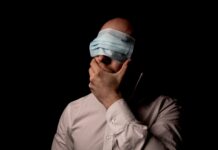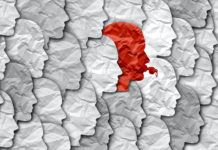Exploring the Fault Lines in Mental Health Discourse: An Interview with Psychologist Justin Karter
Justin Karter discusses his journey to Mad in America, competing models of mental health, and how we navigate these stories in psychotherapy.
Screening + Drug Treatment = Increase in Veteran Suicides
For the past 15 years, the VA's suicide prevention efforts have focused on getting veterans screened and treated for psychiatric disorders, with antidepressants a first-line therapy. This effort has caused veteran suicide rates to steadily rise.
The Case Against Antipsychotics
This review of the scientific literature, stretching across six decades, makes the case that antipsychotics, over the long-term, do more harm than good. The drugs lower recovery rates and worsen functional outcomes over longer periods of time.
Lessons from a Global Psychiatric Conference: The Good, the Bad, and the Complicated
Has the global mental health movement truly reformed its tone-deaf universalist attitudes?
“All Real Living Is Meeting”: Brent Robbins on Love, Death, and the Possibilities of...
Psychologist and existential thinker Brent Robbins reflects on a lifetime of work, the limits of psychiatric diagnosis, and what facing mortality has taught him about joy and human connection.
What Does Our Species Require for a Healthy Life? An Interview with Peter Sterling
In his book "What is Health," Peter Sterling asks this provocative question: What does our species require for a healthy life? And can we achieve this with drugs?
Inside A Forensic Psychiatry Unit: Rolled Ankles, RATs, and Invisible Abuse—The Final Obstacles Toward...
Sexual abuse is inevitable, an unspoken and largely invisible tragedy that affects most, if not all, inmates who enter into any detention center, especially a so-called “mental hospital.”
Big Tech CEOs Meet with Psychiatry’s Leaders to Decide the Future of Mental Health
The paradox of techno-optimism at a huge conference on the future of mental health led by embattled tech CEOs alongside the most prominent figures of psychiatry.
Adverse Childhood Experiences: When Will the Lessons of the ACE Study Inform Societal Care?
The ACE study tells of how adverse childhood experiences increase the risk of psychological and physical problems in adulthood. When will we start incorporating these findings into public health policy and medical care?
Embracing the Shadow—Charlie Morley on Lucid Dreaming as Therapy
On the Mad in America podcast, we hear about the potential of lucid dreaming therapy to aid those struggling with post-traumatic stress.
Chris van Tulleken—Ultra-Processed People: Why Do We All Eat Stuff That Isn’t Food and...
We are joined by Dr. Chris van Tulleken who talks about the science, economics, history, and production of ultra-processed food. We discuss some of the effects of UPF on our brains and bodies and how the food industry positions UPF to dominate our diets.
From Freud to Fanon: How Daniel Gaztambide is Redefining Psychoanalytic Practice
In this interview, Daniel Gaztambide discusses how decolonial perspectives can transform psychoanalytic practice.
The Proactive Search for Mental Illnesses in Children
Part one of a two-part Mad In America investigation into the expansion of psychological screening and electronic surveillance of children and youth. A new government-funded mental health training program for British Columbia family physicians and school staff promotes screening for mental disorders in all children and youth. Critics say the program omits key scientific evidence, seems more like drug promotion than medical education, and downplays serious potential harms. Nevertheless, programs like it are rolling out across Canada and the US.
Summing up the STAR*D Scandal: The Public was Betrayed, Millions were Harmed, and the...
American psychiatry, the NIMH, the larger medical community, and mainstream media have betrayed the American public by failing to make this scandal known.
Psychiatry’s Control-Freak Medical Model Versus Healing and Healers
Following psychiatry’s repeated failures, a sane society would not give it increased status and power. However, our insane society uncritically accepts, celebrates, and worships anything promoted as technologies of control.
Brain Implants: Spinning the Trial Results to Protect the Product
The published report of the Broaden Trial of Deep Brain Stimulation for Depression whitewashed the results: although the efficacy results were negative, the investigators concluded that the therapy still showed "promise", and adverse events suffered by the patients were downplayed or attributed to the disease, and not the treatment. An in-depth investigation of how the trial results were spun, and interviews with patients that tell of harm done.
How to Know What We Don’t Know: An Interview with Psychologist and Novelist Jussi...
MIA's Gavin Crowell-Williamson interviews the neuropsychologist and novelist Jussi Valtonen about how novels can lead us to see the limits of our understanding.
Inside a Pandemic: Media Struggle to Define What’s Normal
Press coverage of the effect of COVID-19 on mental health sends a confusing message: Becoming anxious about it is normal if you are mentally healthy but a sign of illness if you’re not. Although apparently some "normal" people might experience so much anxiety that they, too, could now be seen as mentally ill.
Prescribing an Epidemic: A Veteran’s Story
Had I known what I know now, I never would have taken any of these drugs, and I absolutely would not have taken a role in which my outreach efforts to get veterans into mental health treatment might place thousands of lives at risk.
An FDA Whistleblower’s Documents: Commerce, Corruption, and Death
In 2008, a reviewer of psychiatric drugs at the FDA, Ron Kavanagh, complained to Congress that the FDA was approving a new antipsychotic that was ineffective and yet had adverse effects that increased the risk of death. Twelve years later, a review of the whistleblower documents reveal an FDA approval process that can lead to the marketing of drugs sure to harm public health.
How Therapists Can Help With Psychiatric Drug Withdrawal: An Interview With Anne Guy
MIA's Richard Sears interviews psychotherapist Anne Guy about working with clients withdrawing from psychiatric drugs.
Faith Healing in India: An Ancient Way of Tending to Madness
In contrast to the colonial legacy of medical psychiatry in India, indigenous and faith healing methods emphasize the interconnectedness of the mind, body, and spirit, using rituals, storytelling, and communal support to create a holistic healing environment.
How Should Psychedelic Medicine Handle “Flashbacks”?
Hallucinogen Persisting Perception Disorder (HPPD) is one of the after-effects neglected amid the rapid march of the psychedelic renaissance. But is the impulse to pathologise these perceptual changes helpful?
Jim Flannery: Sorry It’s Not Funny – Comedy, Hip-Hop and Activism
Born and raised in suburban Weathersfield, Connecticut, Jim Flannery was committed at four mental hospitals across the United States. There he received the best care available in the modern world…torture.
The Carter Center’s Guide for Mental Health Journalism: Don’t Question, Follow the Script
The Carter Center’s Journalism Resource Guide on Behavioral Health is a manual for docile journalism. There is no encouragement to be skeptical of the powerful in psychiatry. Rather, the guide provides reporters with a template to follow that reifies conventional wisdom, offering a message similar to what the American Psychiatric Association has sounded for years.

































